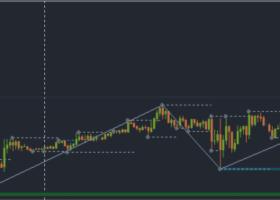Just before the London open, shares in Glencore in Hong Kong were up 31%.
In London, its shares had a volatile opening earlier today, climbing as much as 20 per cent before settling back to a 12 per cent gain at 106p.
Market watchers were suspicious of reading too much into the rebound in Glencore’s shares.
“Nothing has changed. Glencore is still a copper proxy,” the Financial Times quoted Matthew Hasson, director of equity sales at Numis Securities.
“If copper goes down Glencore will fall and vice versa. If Glencore manages to make disposals that bring in more than the $10bn then the balance sheet will look better.”
The recovery remains a mystery.
Glencore on Monday released a statement on the higher share price and increased volumes in its Hong Kong-listed shares, saying it knows of no reason for the movement.
"Having made such enquiry with respect to the company as is reasonable in the circumstances, the board confirms that it is not aware of any reasons for these price and volume movements," Glencore said in a short statement.
The company said it did not uncover any "information which must be announced to avoid a false market in the company's securities or of any inside information that needs to be disclosed" under Hong Kong laws.
However, earlier, at the FT Africa Summit in London, Glencore's chief executive officer Ivan Glasenberg pointed to Glencore’s decision to mothball output at two African copper mines so they could upgrade their operations to lower costs.
“If you’re not making money I believe you should take production out and reduce supply. Don’t create oversupply in the market for no reason,” he said.
Glencore had the backing of the governments of the
Democratic Republic of Congo and Zambia for a temporarily closure of the
mines, FT says referring to Glasenberg. The company intends to help staff affected by the closures.
Mr Glasenberg declined to forecast the outlook for copper prices, which fell to a six-year low in August, but said demand was still growing in China and supplies might tighten.
Neither did he comment on the recent fluctuations in Glencore’s share price, which crashed 30 per cent on Sept 28, only to recover most of its losses by Friday’s close.
On Monday last week, shares of the mining behemoth dropped as low as 20% after city firm Investec issued a bearish note on the company.



